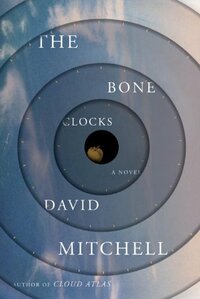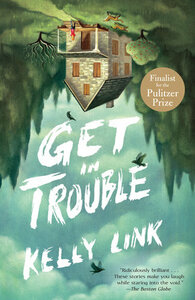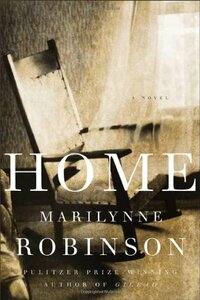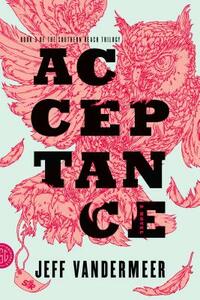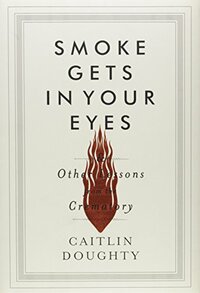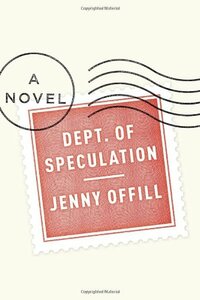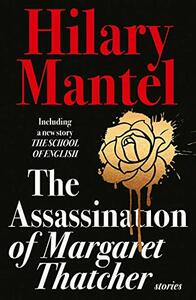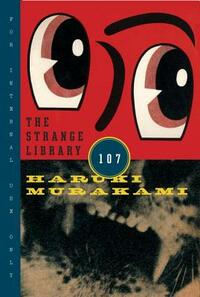Take a photo of a barcode or cover
matthewcpeck's Reviews (587)
'The Bone Clocks' comes to 624 pages. In my halcyon days of commuting by train, I could have blazed through it in perhaps a couple of weeks. Now I'm on paternity leave, at home, surrounded by the flashier distractions of TV and video games (and - oh yeah - a baby), so it took me just over FIVE weeks. I'm a shadow of the reader that I used to be.
Anyhow, 'The Bone Clocks' consists of six different first-person narratives, in the tradition of Mitchell's earlier 'Ghostwritten' and 'Cloud Atlas'. The first and last sections are seen through the eyes of Holly Sykes, daughter of a Gravesend pub owner. At the start she's a teenage runaway with mysterious visions in 1984, and at the end she's a septuagenarian grandma in a dystopian southwest Ireland, in 2043. The intermediate sections tell the stories of other characters whose lives intersect with Holly's, throughout the decades. Looming in the background is a fantastic/supernatural storyline that jumps fully to the foreground in part 5: a century-long battle between two groups of powerful, immortal beings.
Mitchell is one of the great storytellers of contemporary literature, and his mix of propulsive plotting, lyrical, detail-driven prose, and unpredictable jumps in time and place are all as gratifying as I would expect. It had me until the fifth part, which switches to the point of view the immortal 'soul' Marinus, a member of an octet of incorporeal entities that incarnate in varied physical bodies throughout time and dub themselves 'Horologists' (the good guys). The Horologists are engaged in a century-long battle with a secret society of 'Anchorites' (bad guys) that habitually consume the souls of innocents in order to obtain physical immortality. The Horologists and Anchorites, so tantalizingly and mysteriously glimpsed throughout the earlier sections, are exhaustively delved into here via page after page of corny exposition. This, and the inevitable battle filled with blue force fields and telepathic conversation, was a disappointment to me. David Mitchell can do almost anything, but he apparently can't do Neil Gaiman.
Still, 'The Bone Clocks' has its riches to offer, so much more so than the typical single novel. The best section is the second one, narrated by conniving, seducing Cambridge student Hugo Lamb. Then there's the lengthy chunk narrated by cynical novelist Crispin Hershey, which keeps jumping forward a year with each chapter (sort of like the finale of 'How I Met Your Mother'). And the bookend Holly Sykes chapters are full of wonderful sensory detail and humanism; the ending is downbeat with a faint glimmer of hope, instead of flashy. But the uncanniness of 'Cloud Atlas' was missing, for me. An impressive read, but my least favorite of Mitchell's novels.
Anyhow, 'The Bone Clocks' consists of six different first-person narratives, in the tradition of Mitchell's earlier 'Ghostwritten' and 'Cloud Atlas'. The first and last sections are seen through the eyes of Holly Sykes, daughter of a Gravesend pub owner. At the start she's a teenage runaway with mysterious visions in 1984, and at the end she's a septuagenarian grandma in a dystopian southwest Ireland, in 2043. The intermediate sections tell the stories of other characters whose lives intersect with Holly's, throughout the decades. Looming in the background is a fantastic/supernatural storyline that jumps fully to the foreground in part 5: a century-long battle between two groups of powerful, immortal beings.
Mitchell is one of the great storytellers of contemporary literature, and his mix of propulsive plotting, lyrical, detail-driven prose, and unpredictable jumps in time and place are all as gratifying as I would expect. It had me until the fifth part, which switches to the point of view the immortal 'soul' Marinus, a member of an octet of incorporeal entities that incarnate in varied physical bodies throughout time and dub themselves 'Horologists' (the good guys). The Horologists are engaged in a century-long battle with a secret society of 'Anchorites' (bad guys) that habitually consume the souls of innocents in order to obtain physical immortality. The Horologists and Anchorites, so tantalizingly and mysteriously glimpsed throughout the earlier sections, are exhaustively delved into here via page after page of corny exposition. This, and the inevitable battle filled with blue force fields and telepathic conversation, was a disappointment to me. David Mitchell can do almost anything, but he apparently can't do Neil Gaiman.
Still, 'The Bone Clocks' has its riches to offer, so much more so than the typical single novel. The best section is the second one, narrated by conniving, seducing Cambridge student Hugo Lamb. Then there's the lengthy chunk narrated by cynical novelist Crispin Hershey, which keeps jumping forward a year with each chapter (sort of like the finale of 'How I Met Your Mother'). And the bookend Holly Sykes chapters are full of wonderful sensory detail and humanism; the ending is downbeat with a faint glimmer of hope, instead of flashy. But the uncanniness of 'Cloud Atlas' was missing, for me. An impressive read, but my least favorite of Mitchell's novels.
(Note: I won a copy via Goodreads First Reads.)
4 1/2 stars. Kelly Link's fourth story collection is another success, and her finest to date. Link is revered by an impressive roster of writers but has yet to really break through to a wider audience; perhaps this book will do for her what [b:Tenth of December|13641208|Tenth of December|George Saunders|https://d.gr-assets.com/books/1349967540s/13641208.jpg|19256026] did for George Saunders. 'Get In Trouble' has stories with her signature bend of mundane American life (especially teenage girls) and enigmatic fantasy, and notably, a couple of pieces of plain old - but idiosyncratic - realism. 'The Lesson', the shortest and most emotionally pulverizing story, is about a same-sex couple attending a wedding on an island off the Carolinas while a surrogate mother - six months pregnant with their child - starts having contractions back in Boston. Despite one surreally creepy moment, it represents a surprising new direction for Link, a post-postmodern tale not dissimilar from David Foster Wallace of Jennifer Egan. The subject matter is decidedly non-fantastic, but it still works its way under your skin.
Elsewhere, Link's formidable imagination runs wild. The opening story 'The Summer People' is a dreamlike Southern fantasy. 'Secret Identity' and 'Origin Story' are both set in a world where superheroes are a matter of fact. 'Valley of The Girls' is the most disorienting of all, about a future SoCal where rich kids emulate the ancient Egyptians and build high-tech pyramids on the Pacific coast. In 'The New Boyfriend', a razor-sharp tale of teenage love, the protagonist attempts to steal her best friend's advanced android 'Boyfriend' doll for herself.
The last two stories represent Link at the peak of her magician's powers. In 'Two Houses', the crew of a deep-space exploration vessel trade ghost stories while floating in a computer-generated Victorian country house, after a member glimpses their long-lost companion ship. And 'Light' is brilliant, pun intended. Though it's set in the hurricane-battered Florida Keys after some unnamed 'weirdness' has resulted in a world filled with pocket universes, double shadows that sprout twins, and a mysterious sleeping sickness, it's really the loneliness of its alcoholic protagonist, Lindsey, that will stick with you. If you like [a:Karen Russell|26417|Karen Russell|https://d.gr-assets.com/authors/1295563225p2/26417.jpg] or [a:Joy Williams|49237|Joy Williams|https://d.gr-assets.com/authors/1332292825p2/49237.jpg] - or if you only read one Kelly Link story as a litmus test - read 'Light'. It's a masterpiece.
So go on - add this to your to-read list and read all of Kelly Link's other books before you die.
4 1/2 stars. Kelly Link's fourth story collection is another success, and her finest to date. Link is revered by an impressive roster of writers but has yet to really break through to a wider audience; perhaps this book will do for her what [b:Tenth of December|13641208|Tenth of December|George Saunders|https://d.gr-assets.com/books/1349967540s/13641208.jpg|19256026] did for George Saunders. 'Get In Trouble' has stories with her signature bend of mundane American life (especially teenage girls) and enigmatic fantasy, and notably, a couple of pieces of plain old - but idiosyncratic - realism. 'The Lesson', the shortest and most emotionally pulverizing story, is about a same-sex couple attending a wedding on an island off the Carolinas while a surrogate mother - six months pregnant with their child - starts having contractions back in Boston. Despite one surreally creepy moment, it represents a surprising new direction for Link, a post-postmodern tale not dissimilar from David Foster Wallace of Jennifer Egan. The subject matter is decidedly non-fantastic, but it still works its way under your skin.
Elsewhere, Link's formidable imagination runs wild. The opening story 'The Summer People' is a dreamlike Southern fantasy. 'Secret Identity' and 'Origin Story' are both set in a world where superheroes are a matter of fact. 'Valley of The Girls' is the most disorienting of all, about a future SoCal where rich kids emulate the ancient Egyptians and build high-tech pyramids on the Pacific coast. In 'The New Boyfriend', a razor-sharp tale of teenage love, the protagonist attempts to steal her best friend's advanced android 'Boyfriend' doll for herself.
The last two stories represent Link at the peak of her magician's powers. In 'Two Houses', the crew of a deep-space exploration vessel trade ghost stories while floating in a computer-generated Victorian country house, after a member glimpses their long-lost companion ship. And 'Light' is brilliant, pun intended. Though it's set in the hurricane-battered Florida Keys after some unnamed 'weirdness' has resulted in a world filled with pocket universes, double shadows that sprout twins, and a mysterious sleeping sickness, it's really the loneliness of its alcoholic protagonist, Lindsey, that will stick with you. If you like [a:Karen Russell|26417|Karen Russell|https://d.gr-assets.com/authors/1295563225p2/26417.jpg] or [a:Joy Williams|49237|Joy Williams|https://d.gr-assets.com/authors/1332292825p2/49237.jpg] - or if you only read one Kelly Link story as a litmus test - read 'Light'. It's a masterpiece.
So go on - add this to your to-read list and read all of Kelly Link's other books before you die.
'Home' is, as per James Wood, the 'brother' to its predecessor 'Gilead', telling the story of the fictional Iowa town's other main ministerial family during the same period of time. Each novel complements the other, with scenes and conversations that are only hinted at in one book being fully played out in its counterpart.
While 'Gilead' took the form of a series of remarkably convincing letters, though, 'Home' is styled as a conventional third-person narrative - albeit without chapters - from the viewpoint of Glory Boughton, who's left her teaching job and a failed engagement to care for her ailing, widowed, father, the retired Reverend Robert Boughton. Glory and her father receive a surprise guest - Glory's long-absent, ne'er-do-well older brother Jack, Rev. Ames's spiritual nemesis in 'Gilead'. In terms of plotting, this is about as complicated as 'Home' gets. This is a book that manages the tricky business of deriving its suspense from people trying to better themselves, instead of from violence and shock (with few exceptions). Jack is the not-so-secret shame of the Boughton family, a former juvenile delinquent turned alcoholic transient and occasional thief, and he covers his pain in layers of irony and distance. He's all too aware of his reputation and the years of emotional stress wreaked upon his father, now at his most physically and mentally fragile - the worst incident being the death of a neglected child that the young Jack fathered with an impoverished teenage girl. And caught in the middle of this quiet war is the sensitive Glory, who finds a closeness with Jack that she's never felt before.
Marilynne Robinson's first two novels are pretty much perfect, with some of the most transcendently beautiful prose I've ever read. 'Home' is more austere, and it's a very slow build of a book. For the first two thirds, it can be...well, I hate to use the word, but it's almost boring, and lacking in the glorious runs of poetical paragraphs that fill 'Housekeeping' and 'Gilead'. Also, am I the only reader to be bothered by the strange, mechanical overuse of 'he laughed' and 'she laughed' throughout every single conversation in the novel? But the last quarter-to-third of 'Home' is like floodgates opening, with a rush of amazing technique and emotional impact. It's well worth some of the earlier rigors, and shows why Robinson is the master that she is. Looking forward to 'Lila'.
While 'Gilead' took the form of a series of remarkably convincing letters, though, 'Home' is styled as a conventional third-person narrative - albeit without chapters - from the viewpoint of Glory Boughton, who's left her teaching job and a failed engagement to care for her ailing, widowed, father, the retired Reverend Robert Boughton. Glory and her father receive a surprise guest - Glory's long-absent, ne'er-do-well older brother Jack, Rev. Ames's spiritual nemesis in 'Gilead'. In terms of plotting, this is about as complicated as 'Home' gets. This is a book that manages the tricky business of deriving its suspense from people trying to better themselves, instead of from violence and shock (with few exceptions). Jack is the not-so-secret shame of the Boughton family, a former juvenile delinquent turned alcoholic transient and occasional thief, and he covers his pain in layers of irony and distance. He's all too aware of his reputation and the years of emotional stress wreaked upon his father, now at his most physically and mentally fragile - the worst incident being the death of a neglected child that the young Jack fathered with an impoverished teenage girl. And caught in the middle of this quiet war is the sensitive Glory, who finds a closeness with Jack that she's never felt before.
Marilynne Robinson's first two novels are pretty much perfect, with some of the most transcendently beautiful prose I've ever read. 'Home' is more austere, and it's a very slow build of a book. For the first two thirds, it can be...well, I hate to use the word, but it's almost boring, and lacking in the glorious runs of poetical paragraphs that fill 'Housekeeping' and 'Gilead'. Also, am I the only reader to be bothered by the strange, mechanical overuse of 'he laughed' and 'she laughed' throughout every single conversation in the novel? But the last quarter-to-third of 'Home' is like floodgates opening, with a rush of amazing technique and emotional impact. It's well worth some of the earlier rigors, and shows why Robinson is the master that she is. Looking forward to 'Lila'.
3 1/2 stars. I'm happy to report that Jeff Vandermeer's conclusion to the 'Southern Reach' trilogy is - mostly - a return to the eerie, propulsive narrative force of the first book, 'Annihilation'. 'Acceptance' is a sequel and prequel in one, with a triad of alternating stories - the continuing journey of the characters dubbed Control and Ghost Bird, the tale of the project's former Director in the months leading up to the fateful expedition of book 1, and the story of lighthouse keeper Saul Evans and the advent of Area X. It's certainly not a stand-alone book; I was confused even after the 5 months or so since I finished book 2.
Although Vandermeer's prose can tend to be overwrought, it's certainly a lot more interesting than many of his peers in the genre. I found the stories of Saul Evans and Ghost Bird/Biologist to be significantly more compelling than those of Control and the Director - after some of the mind-exploding sci-fi concepts that pop up in the second half of 'Acceptance', the return to the paranoia/espionage mind games of the Southern Reach directors seems tiresome and unimportant. When the book turns to letter from the biologist in the middle, I was reminded of how sublime 'Annihilation' was.
Vandermeer feeds his readers just enough explanation of Area X to spark a sense of wonder and strangeness, and not enough for complete understanding. Which is fine with me. If much of the spy-novel stuff could be excised, 'The Southern Reach Trilogy' would be a perfect epic of haunting 21st-century speculative fiction.
Although Vandermeer's prose can tend to be overwrought, it's certainly a lot more interesting than many of his peers in the genre. I found the stories of Saul Evans and Ghost Bird/Biologist to be significantly more compelling than those of Control and the Director - after some of the mind-exploding sci-fi concepts that pop up in the second half of 'Acceptance', the return to the paranoia/espionage mind games of the Southern Reach directors seems tiresome and unimportant. When the book turns to letter from the biologist in the middle, I was reminded of how sublime 'Annihilation' was.
Vandermeer feeds his readers just enough explanation of Area X to spark a sense of wonder and strangeness, and not enough for complete understanding. Which is fine with me. If much of the spy-novel stuff could be excised, 'The Southern Reach Trilogy' would be a perfect epic of haunting 21st-century speculative fiction.
Caitlin Doughty's memoir-cum-manifesto is fantastically funny, erudite, and thought-provoking. It deserves to be read by an audience wider than that which would normally seek out books involving corpses.
The Hawaii-born Doughty took a job in an Oakland funeral home right after graduating from college (with a degree in medieval studies). Specifically, she worked in the crematory, preparing remains for the massive 'retort' ovens and collecting the ashes afterward. This formative work experience - along with the side jobs of picking up bodies from homes and hospitals, and sitting in on the occasional embalming - make up the majority of her breezy yet weighty book. There are some rather interesting anecdotes from her time here, as you would expect, ranging from the darkly comic to the revolting (the book is preceded by a warning) to the awfully sad. There are some deeply personal asides in which the author comes face-to-face with eternity herself. But it's Doughty's passion for changing our irrational attitudes towards mortality that drives this volume.
Like Atul Gawande's "Being Mortal", "Smoke Gets In Your Eyes" is plea for acceptance of death in a modern culture that literally and figuratively buries it. A hundred years ago, most Americans died (and hoped to die) at home, surrounded by family and friends that would respectfully wash the decedent's body afterward. Today, we virtually deny death, whether it's by the clinical contemporary funeral process or the neglect of our rapidly growing elderly population.
The particulars of Doughty's mission, admittedly, aren't always clear, but the main point certainly is: our culture of death denial has us skewed. And while Mary Roach's "Stiff" convinced me that I should donate my body to medicine, "Smoke Gets In Your Eyes" has me fascinated by the concept of "green" burial, or, to paraphrase Doughty, to let the animals I've consumed my whole life to have their turn with me.
The Hawaii-born Doughty took a job in an Oakland funeral home right after graduating from college (with a degree in medieval studies). Specifically, she worked in the crematory, preparing remains for the massive 'retort' ovens and collecting the ashes afterward. This formative work experience - along with the side jobs of picking up bodies from homes and hospitals, and sitting in on the occasional embalming - make up the majority of her breezy yet weighty book. There are some rather interesting anecdotes from her time here, as you would expect, ranging from the darkly comic to the revolting (the book is preceded by a warning) to the awfully sad. There are some deeply personal asides in which the author comes face-to-face with eternity herself. But it's Doughty's passion for changing our irrational attitudes towards mortality that drives this volume.
Like Atul Gawande's "Being Mortal", "Smoke Gets In Your Eyes" is plea for acceptance of death in a modern culture that literally and figuratively buries it. A hundred years ago, most Americans died (and hoped to die) at home, surrounded by family and friends that would respectfully wash the decedent's body afterward. Today, we virtually deny death, whether it's by the clinical contemporary funeral process or the neglect of our rapidly growing elderly population.
The particulars of Doughty's mission, admittedly, aren't always clear, but the main point certainly is: our culture of death denial has us skewed. And while Mary Roach's "Stiff" convinced me that I should donate my body to medicine, "Smoke Gets In Your Eyes" has me fascinated by the concept of "green" burial, or, to paraphrase Doughty, to let the animals I've consumed my whole life to have their turn with me.
You may be wary of "Dept. Of Speculation" because it's yet another novel about a marriage shaken up by an affair. And a protagonist that's a writing professor in New York, no less. But Jenny Offill's masterful condensation and slicing/dicing of narrative makes this well-trod path seem like uncharted territory.
Its 170-odd pages consist of curt little paragraphs, separated by double-spaces. It's part linear story and part quotes, poetry, history, scientific facts, and jokes: a style reminiscent of "Wittgenstein's Mistress" and W.G. Sebald. And even with all this, and a couple of deliberately jarring changes of tense and points of view, the book moves along like a thriller.
I read an interview with Offill in which she explained that she originally had a conventional novel in the works, which she then pared down and scrambled up in a fit of inspiration. With her generous wit and psychological acuity, that early version of "Dept. Of Speculation" would still have been a notably good book. But its unconventional form makes it a great book, and worth the attention that it's received.
Its 170-odd pages consist of curt little paragraphs, separated by double-spaces. It's part linear story and part quotes, poetry, history, scientific facts, and jokes: a style reminiscent of "Wittgenstein's Mistress" and W.G. Sebald. And even with all this, and a couple of deliberately jarring changes of tense and points of view, the book moves along like a thriller.
I read an interview with Offill in which she explained that she originally had a conventional novel in the works, which she then pared down and scrambled up in a fit of inspiration. With her generous wit and psychological acuity, that early version of "Dept. Of Speculation" would still have been a notably good book. But its unconventional form makes it a great book, and worth the attention that it's received.
A collection of dark and cunning short stories from Dame Hilary Mantel. No two stories are alike, but Mantel's tendency to shock and to overturn received wisdom are consistent throughout.
With the exception of the overwrought prose poem-ish 'Terminus', each story is notable. Some of my favorites: "Comma" and "The Heart Fails Without Warning", two varied but equally haunting looks at adolescence; "The Long QT", a morbidly comic domestic piece; possible vampire tale "Harley Street"; and the brilliant title story that imagines an alternate-reality encounter with said assassin.
With the exception of the overwrought prose poem-ish 'Terminus', each story is notable. Some of my favorites: "Comma" and "The Heart Fails Without Warning", two varied but equally haunting looks at adolescence; "The Long QT", a morbidly comic domestic piece; possible vampire tale "Harley Street"; and the brilliant title story that imagines an alternate-reality encounter with said assassin.
2 1/2 or 3 stars...a surreal short story, the type of which Haruki Murakami can probably write in his sleep, about an unnamed boy that finds himself imprisoned in a dungeon in the basement of a public library. It's a fable with a make-it-up-as-it-goes feel, Murakami's usual mix of mundane humor and dream logic, and an appearance from his recurring Sheep Man character. While this might have worked better as a story-within-a-story in one of his novels, it's pretty insubstantial as even a short story and lacks staying power (although the last sentence and epilogue are great). What makes this special is the print version, with its wacky, inspired design by Chip Kidd.
Thank God/Yahweh/Allah for Karen Armstrong. In our current culture of overly aggressive atheists and primitive fundamentalists, Armstrong's writings on Western Religion are a sanctuary of sanity and clarity.
'The Bible: A Biography' is, just as its title promises, an account of the 'life' of the most discussed, argued-over, influential tome of them all. The first half runs through what we know of the history of the composition and origins of the Old and New Testaments, and the second half provides an account of its exegesis and interpretation by Jews and Christians from the beginning of the millenium to the present day. The fact that Armstrong attempts to cover all of this in less than 230 pages may frustrate some readers - some sections may seem rushed and some important subjects and figures given a scant couple of paragraphs. But there are centuries of literature and educational materials about the Bible out there for the reading, and this book is an accessible, continually fascinating and admirably structured introduction to a complex topic. Armstrong is incapable of writing a weakly worded sentence.
One of many interesting facts gleaned from this book: Pat Robertson-style Christian fundamentalism is actually a modern phenomenon. The bible scholars of centuries past understood that the Bible should not be taken literally. What happened?
'The Bible: A Biography' is, just as its title promises, an account of the 'life' of the most discussed, argued-over, influential tome of them all. The first half runs through what we know of the history of the composition and origins of the Old and New Testaments, and the second half provides an account of its exegesis and interpretation by Jews and Christians from the beginning of the millenium to the present day. The fact that Armstrong attempts to cover all of this in less than 230 pages may frustrate some readers - some sections may seem rushed and some important subjects and figures given a scant couple of paragraphs. But there are centuries of literature and educational materials about the Bible out there for the reading, and this book is an accessible, continually fascinating and admirably structured introduction to a complex topic. Armstrong is incapable of writing a weakly worded sentence.
One of many interesting facts gleaned from this book: Pat Robertson-style Christian fundamentalism is actually a modern phenomenon. The bible scholars of centuries past understood that the Bible should not be taken literally. What happened?
